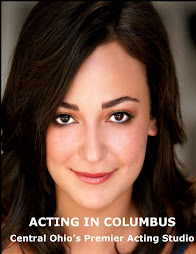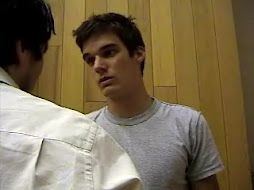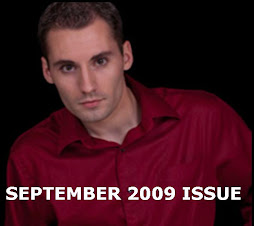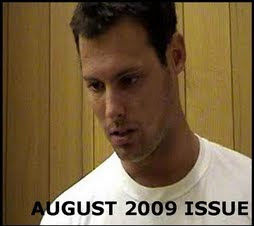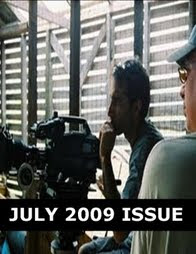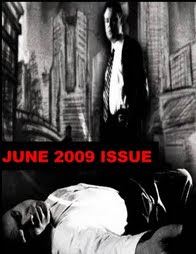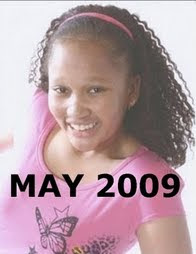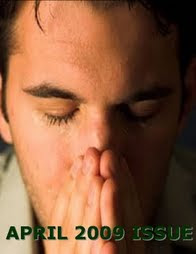FILM:
"SANDBAR" CASTING CALL:
An independent feature film shooting this winter in Ohio. SAG PRODUCTION.
SYNOPSIS: Freewheeling tragicomedy follows a day in the life of a dysfunctional young man, his ex-Marine father and the father's wild girlfriend.
AUDITION DATE: Saturday October 17, 2009
LOCATION: TBA
*Once attendance is confirmed, we will schedule your audition time individually. (ALSO ACCEPTING VIDEO AUDITIONS IF UNABLE TO ATTEND)
CONTACT: Nicholas Bushman
Nicholas.P.Bushman@gmail.com
WESITE: http://sandbarmovie.com/
BREAKDOWN:
RONNIE
Ex-Marine father (LEAD ROLE) 40-55, Caucasian
SAG PRODUCTION Scale rate: $100/day plus PER DIEM
Needed for 5 WEEKS
ROXANNE
Ronnie's bubbly, wild girlfriend (LEAD ROLE)
18-25, Caucasian Talks with an Appalachian twang
SAG Production Scale rate: $100/day plus PER DIEM
Needed for 3 WEEKS
SHERRY
Spunky, overbearing mother 40s, Caucasian
Talks fast with Appalachian twang
SAG Production Scale rate: $100/day plus PER DIEM
Needed for 2 days
Supporting role. Needed for 1 day.
35-55, African American
SAG Production Scale rate: $100/day plus PER DIEM
FRANK CORDIAL
Wholesome step father. Supporting role. 40s, Caucasian
SAG Production Scale rate: $100/day plus PER DIEM
Needed for 4 days
HOOLIGAN #1
Supporting role. Male, Caucasian Ages 14-18
Needed for two days
THEATRE
Available Light Theatre Auditions
AUDITIONS Friday, October 16 6-8pm Saturday, October 17 6-8pm at the Vern Riffe Center, 77 South High StreetEnter on State Street, go to the third floor and you'll be escorted to the audition room.
Audition for upcoming projects, including:
"Jane Austen's Pride & Prejudice" adapted by Daniel Kramerdirected by Eleni Papaleonardos. Rehearsals begin mid-November, performances January 14-30
"Attempts on Her Life" by Martin Crimpdirected by Matt Slaybaugh. Rehearsals begin late March, performances May 13-23
"To Kill a Mockingbird" dramatized by Christopher Sergel From the book by Harper Lee directed by Ian ShortRehearsals begin mid-May, performances June 24-27
Required: One monologue, 2 minutes or less, prepared material preferred, cold readings will be on-hand. Optional: 2 minutes of another talent - juggling, singing, dancing, whistling, whittling, etc. - show us your unique-ness
For more info send email to: avltheatre@gmail.com website: Available light [theatre]
Gallery Players
Open Auditions for Capture the Moon Oct. 19-20, 7-8 p.m.
Open auditions for Gallery Players' winter children's production of Capture the Moon, will be held in the Roth-Resler Theater at the JCC of Greater Columbus, 1125 College Ave., Columbus, on Monday, Oct. 19, and Tuesday, Oct. 20, from 7 to 8 p.m.
Children, ages 9 to 14, are encouraged to attend and read from the script to audition for a role.
The production will be directed by Laurie Alexander, and will run for five performances - Saturdays, Dec. 5, 12 @ 7:30 p.m. Sundays, Dec. 6, 13 @ 2:30 p.m.Thursday, Dec. 10 @ 7:30 p.m.
Capture the Moon takes place a long time ago, before street lights were invented, when the people in a Jewish shtetl were too poor to have lanterns to light their way around their village on moonless Sabbath nights. So what do they do? They come up with imaginative ways to capture the full moon! Based on Jewish folktales, and laced with Jewish irony and wit, this funny play for young audiences takes a light-hearted look at what it's like to be different. It's also a celebration of simple wisdom, tolerance and how every one of us is unique. The play is adapted from a Jewish folktale by Ernest Joselovitz and Harry Michael Bagdasian.
Please call (614) 559-6248 with any questions.
UPCOMING CLASSES AND WORKSHOPS

Acting for TV Commercials - Introduction to Acting for the Camera Sunday September 27, 2009 1:00pm -8:00pm $200
Learn how to audition for and break into the local commercial and industrial industry. You will learn how to make the first contact with the agents. By taking this class you have the opportunity to show the agents that you are serious about pursuing this type of work. This workshop will give you experience with the actual audition process.
You'll work on-camera all day doing both prepared and cold readings, and receive plenty of feedback from instructor Richard Mason.
Script analysis skills: We have written our own textbook that breaks this process down and makes it simple.
Comfort in front of the camera: How do you stand? How do you hold the script? How do you deal with your partner and the camera at the same time? What is a slate? What do you do with your hands? Practice at doing all types of commercials: Scene work, improv, one-liners, bite and smiles, handling products, etc.
You'll also learn how to market to the casting directors, all about pictures and resumes, how the unions work, etc.
Weekend Acting Boot Camp is designed for the beginner who want intensive training over a short period of time or the rusty actor who needs to get back on top of their game. Boot Camp will give you a strong foundation in acting techniques as well as a firm grasp of the nuts and bolts of scene work and audition skills.
Your Boot Camp will consist of no more than eight students who will discover together that acting is probably the most challenging and thrilling thing they have ever done. You will learn that if indeed this is for you and you stick with it, you will not only acquire a skill, but you will do something quite extraordinary with your life.
This class is limited to eight (8) students.
Building Your Acting Resume
As an actor, your resume is one of the most critical tools in helping you get work. It helps a casting director understand not just your experience, but the type of work you're interested in, the skills and training you bring to a project, and your goals as a performer. It, along with your headshot, is a critical first step to getting into the rroom to audition.There are many different formats out there for acting resumes, and this guide is not intended to convey a "one true way." Rather, this will help you make informed decisions about your resume choices, so that everything you say with it is intentional. Here are five tips to help you start a resume, or refine the focus of your current one.
Be sure not to forget the basics. List your name prominently, your contact information (email address and a phone number, but do keep safety in mind - never list a home address and consider using a service for voicemail), your union status, the age-range you play, your height and basic measurements or sizes. When it comes to ages and sizes, be accurate. Nothing turns a casting director off more than bringing in someone they thought was perfect, who is nothing at all as advertised.
Break your credits up into sections - include seperate areas for film and stage work. Lead with the one that has the most impressive credits or the one you are most interested in pursuing. When you have more credits, consider creating a seperate resume for each, or maintaining two combined resumes (this is more common in New York City than in Los Angeles), leading with a different category depending on the job you are submitting for. Other credit categories that may be applicable include "television," "industrials" and "print." For each credit list the name of the production, the name of your role, and the production or theatre company. You may also wish to note the director, the theater, and the nature of the role (i.e., "lead", "supporting", "featured", "under 5"). Do not list background work. People do it all the time, but it is anything but a help to them. Within a section, credits should be listed chronologically, starting with the most recent.
Include a section for "training." Include acting courses, and courses in other skills directly useful to the actor - voice, singing, dance, movement, stage combat, etc.
Create a section for "special skills." This section should include anything you can conceive of a character doing on stage or screen, and that you do well enough to be paid to do. Some good examples of special skills include sports, specific types of dance, languages, craft hobbies, accents, skills with animals and potentially relevant workplace experience. This is also a good place to list whether you have a driver's license, a valid passport and/or an academic degree (be sure to note your major). This is also the part of your resume where it's okay to get a little creative, as this section can often lead to additional discussion int eh audition room. And the longer they want to keep talking to you, the better it is.
If you're just starting out, or have recently completed school, you should feel comfortable listing productions you were in, in school. As your credits improve, don't make your font tinier, but remove older, less relevant credits from your resume. Readability and accuracy should always be your prime goals.
Good luck!
Be sure not to forget the basics. List your name prominently, your contact information (email address and a phone number, but do keep safety in mind - never list a home address and consider using a service for voicemail), your union status, the age-range you play, your height and basic measurements or sizes. When it comes to ages and sizes, be accurate. Nothing turns a casting director off more than bringing in someone they thought was perfect, who is nothing at all as advertised.
Break your credits up into sections - include seperate areas for film and stage work. Lead with the one that has the most impressive credits or the one you are most interested in pursuing. When you have more credits, consider creating a seperate resume for each, or maintaining two combined resumes (this is more common in New York City than in Los Angeles), leading with a different category depending on the job you are submitting for. Other credit categories that may be applicable include "television," "industrials" and "print." For each credit list the name of the production, the name of your role, and the production or theatre company. You may also wish to note the director, the theater, and the nature of the role (i.e., "lead", "supporting", "featured", "under 5"). Do not list background work. People do it all the time, but it is anything but a help to them. Within a section, credits should be listed chronologically, starting with the most recent.
Include a section for "training." Include acting courses, and courses in other skills directly useful to the actor - voice, singing, dance, movement, stage combat, etc.
Create a section for "special skills." This section should include anything you can conceive of a character doing on stage or screen, and that you do well enough to be paid to do. Some good examples of special skills include sports, specific types of dance, languages, craft hobbies, accents, skills with animals and potentially relevant workplace experience. This is also a good place to list whether you have a driver's license, a valid passport and/or an academic degree (be sure to note your major). This is also the part of your resume where it's okay to get a little creative, as this section can often lead to additional discussion int eh audition room. And the longer they want to keep talking to you, the better it is.
If you're just starting out, or have recently completed school, you should feel comfortable listing productions you were in, in school. As your credits improve, don't make your font tinier, but remove older, less relevant credits from your resume. Readability and accuracy should always be your prime goals.
Good luck!
Acting Resume Tips
Some would argue that an actor's resume is even more important than his or her headshot. The headshot expresses the look and feel of the actor at a glance, but the resume sells the versatility, skillfullness, and success of an actor before he or she ever shows up to the audition. In this article we will quickly review the central purpose of an acting resume and from there discuss what should and should not go in it and why.An acting resume is exactly one side of one page, and you will typically staple it to the back of your head shot. This single page represents you as an artist, as an entertainer, as an employee, and as a colleague. The average audition gives you just a minute or two to make a direct impression on the auditioners, and the opinion they form during that short time will be heavily impacted by their preconceived notions of you. Those preconceptions come from two places: their own life experiences, and you resume and headshot. There is absolutely nothing you can do about their life experiences, but there is everything you can do to give them a good and solid impression of you through your resume and headshot.
In order to do that, you will have to do a little thinking about what the auditioners seem to be looking for. What show are they putting up, and how does it compare to their previous shows? What types of shows do these people typically produce, and what kinds of people do they usually use for the type of part you're trying out for? Once you've considered what they're looking for, the only thing to do is to try and give it to them. You're an actor, so this should be the easy part.The only thing you need to realize is that your acting resume is not an extension of you as an actor, it is an extension of the part you want to play. So, you should twist and pull at the facts of your professional life until they fit, as closely as possible, the specific audition. Don't lie; just select the shows you list and the order in which you list them to suit the demands of the part. Highlight the skills that will enhance this particular show. This is a little bit of an extra investment in terms of time and energy, but it's not that big an investment. Five or ten minutes per audition could be the difference between your next big break and you next season of waiting tables.
In order to do that, you will have to do a little thinking about what the auditioners seem to be looking for. What show are they putting up, and how does it compare to their previous shows? What types of shows do these people typically produce, and what kinds of people do they usually use for the type of part you're trying out for? Once you've considered what they're looking for, the only thing to do is to try and give it to them. You're an actor, so this should be the easy part.The only thing you need to realize is that your acting resume is not an extension of you as an actor, it is an extension of the part you want to play. So, you should twist and pull at the facts of your professional life until they fit, as closely as possible, the specific audition. Don't lie; just select the shows you list and the order in which you list them to suit the demands of the part. Highlight the skills that will enhance this particular show. This is a little bit of an extra investment in terms of time and energy, but it's not that big an investment. Five or ten minutes per audition could be the difference between your next big break and you next season of waiting tables.
CRAFT NOTES by Ed Hooks

Pursuing Objectives
You can't learn how to act by reading a book, not even one by Stanislavsky, Meisner, Adler or Hagen. How-to acting books make for interesting reading, but a cerebral understanding of acting is not going to do the trick. You learn the art and craft of acting by actually getting up on stage and doing it, the same way you learn how to ride a bicycle or fly an airplane. Acting is a hands-on, direct experience kind of thing, which is why doing it is thrilling and frightening simultaneously. You learn how to swim by jumping into the deep water, not by messing around in the wading pool.
Having said that, I am now going to try to explain what an "objective" is and why it is important to you as an actor. When you are acting in a scene, you should have an objective 100 percent of the time. Think of it as a destination or a task that you want to accomplish. An objective should be provable. If you want to fly to London, getting to London would be your objective, and you would know whether you got there or not. An objective should not be vague. "I want to be a happy person" is an admirable sentiment, but it is not a viable objective for an actor in a scene because happiness is too subjective to measure. Will any of us ever get to a place in life where we figure we have achieved the apex of personal happiness? I don't think so. But let's say, for the sake of argument, that having a family might be a significant ingredient to your happiness formula. If so, then getting pregnant would be a good objective. Unless you aren't married yet, in which case a better objective would be to get a date.
One problem I have noticed is that acting teachers are not consistent in the way they (we) use the word "objective". I recently read the manuscript for a new text on acting, written by an experienced actor, and he talked about how you should "play your objective". That isn't correct. You play an action in pursuit of an objective. Getting to London is the objective; buying a ticket on British Airways is an action in pursuit of that objective. Packing your clothes for the trip is an action in pursuit of that objective. Taking a taxi to the airport is an action in pursuit of that objective. You may have countless actions, one after the other, all in pursuit of the same objective. The idea is that you pursue the objective until you either achieve it, or until another objective takes its place. Your pilot has to land your airplane in the Hudson River? The heck with London, now you just want to get ashore without getting your laptop or Kindle wet. That is your new objective.
Action in pursuit of an objective is part of the equation of acting, but you need conflict (obstacle) in order to make the equation theatrical. You play an action in pursuit of an objective while overcoming an obstacle. Theatrical reality is not the same thing as regular reality. Regular reality is what you get at the spa or the mall. Theatrical reality has structure, form. Ideally, a director should be able to freeze frame actors on stage and ask each one what he is doing. The actor should be able to answer in theatrical terms - action, objective, and obstacle. This is, however, easier said than done. If stopped mid-performance and asked that question, an actor might reply for example, "I am listening to Leslie." "What's your objective?" "To hear what he has to say." Sigh .... To hear what the other character has to say is not a viable objective. Listening is an action, but the conversation between this fellow and Leslie presumably has some point to it. Words are just a tool, and acting has very little to do with words in the first place. "Why are you listening to Leslie?" "Okay, I want him to admit that he has been secretly dating my girlfriend." Bingo! That would be a viable objective. Either he will tell you, or he won't. See what I mean?
All of which brings us back to my original point. You can't learn how to act by reading a book. Now that you thoroughly understand what an objective is in acting, you need to get on a stage and start playing scenes. Soon enough, you will discover that it is not enough to just be truthful and natural and spontaneous. You are going to have to pursue objectives. With actions. While overcoming obstacles. Take it to the bank.
How to Feel Great After an Audition: The "Identity Way"

By Roger Dewitt
What happens when someone asks you, "So, what do you do, Bob?" Most actors answer in one of two ways. Either they say "I am an actor" or they apologize and explain why they aren't in a show right now by saying, "Well, I'm trying to be an actor" or something similar. Well I have something shocking to report folks; both of these answers are deadly to your self esteem and your career. In both cases, Bob was asked what he did not who he is! This may seem very picky, but almost all the actors I work with need to understand this distinction so that they can reclaim some sense of power in a business that seems so subjective. Let me explain further.
When we say the simple phrase "I am an actor" we are identifying who we are with what we do! If we take this a little further, we ask ourselves "what do actors do?" The obvious answer is, "They act, that's what they do!" At that point I always ask my actor clients, "So, who are you when you are not acting." This usually brings a puzzled look to their faces - probably much like the look on your faces right now - and they ask "what do you mean?"
This is what I mean. Actors act. If you over identify yourself with your business then when you aren't acting, you will see yourself as incomplete. Next, you go into auditions incomplete and "ask" some casting director to make you whole again by giving you an acting job. You back your way into the audition room and lose all sense of power because you have given it away to the person behind the table! You give them the power to make you "whole." See the dilemma?
The Solution
Fact: If the acting business didn't exist, you would still be exactly who you are and still bring all the same gifts and talents to your life.
Fact: What reads as an actor isn't your "performance," it is the "YOU" you bring to that performance. Truth reads to an audience.
What if we played a different game with ourselves? What if we got really clear about what gifts and talents we bring to our acting AND our life?
What if, instead of thinking of ourselves as "actors," we saw who we really are: creative, passionate, communicators, etc (you fill in the blank)...? What we do is bring that creativity and passion etc... to our work!
Think of how differently you would walk into an audition room if, instead of begging a casting director to make you whole by letting you act, you came with a clear knowledge of what you really bring as a person. What if you came in sharing your gift of creativity with that piece of audition material? When you left that audition room you would still have your creativity and your sense of who you are. It would NOT be left in that room with someone else deciding your fate. You are as intact and whole when you leave that audition room as when you walked into it - whether you get the job or not!
Try this experiment:
1) Really take a good hard look at how you think of yourself. See if you really identify who you are with what you do.
2) Make a list of what qualities you bring to your life and your performing. Ask yourself, "if acting didn't exist what are the qualities that I bring to my acting that I also bring to my life in general." (Hint: if this is difficult, you may want to ask 5 of the smartest friends you know for their ideas of what gifts you bring, or work with a teacher or a coach on this question.)
3) Once you have your list, start reorient your thinking around who you really are. Apply that to your auditions. Bring who you are into that room with your material and show that.
4) Continue to get clear on your gifts and use them in every area of your life... at your survival job, in class, with your friends... everywhere. See how much more you are than "just an actor?"
BOOK OF THE MONTH

AN ACTOR PREPARES by Constantin Stanislavski
So much mystery and veneration surrounds the writings of the great Russian teacher and director Stanislavski that perhaps the greatest surprise awaiting a first-time reader of An Actor Prepares is how conversational, commonsensical, and even at times funny this legendary book is. After many productions with the Moscow Arts Company, Stanislavski sought a way to introduce his new style of acting to the world outside of his rehearsal hall. The resulting book is a "mock diary" of an actor describing a series of exercises and rehearsals in which he participates. He details his own emotional and intellectual reactions to each effort, and how his superficial tricks and mannerisms begin to disappear as he increasingly gives over his conscious ego to a faith in the creative power of his subconscious.
Rarely has any writer on the theater achieved the sort of lucid and inspired analysis of the acting process as Stanislavski does here, and his introduction of such now-standard concepts as "the unbroken line," "the magic if," and the idea of emotional memory has laid the groundwork for much of the great acting of the 20th century. While much excess and nonsense was to follow in the steps of Stanislavski's writings, his original texts remain invaluable, and surprisingly accessible, to any actor or student of drama. -John Longenbaugh
Subscribe to:
Comments (Atom)





